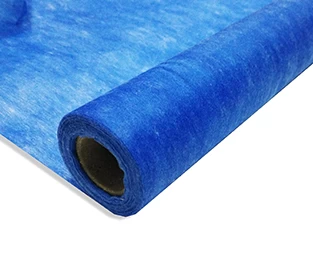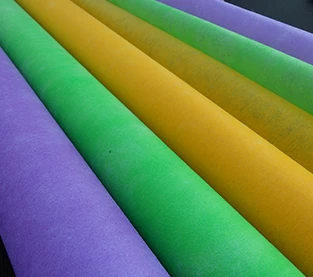Product: ES Material Fiber Nonwoven Fabric For Packaging
Raw Material: PP+PE
Nonwoven Technology: thermal bonded
Dotted Design: dot or plain
Gram: 25 gsm - 30 gsm
Color: White
Specification: custom
Sample: Can be provided without charge, freight to be collect
Applications:
Medical(20-60gsm): face masks,diapers,bed sheets,curtains,pillow covers,sanitary,etc
Packaging(25-30gsm): tea bag, coffee bag/filter paper, dust-proof covers.etc
Product: ES Thermal Bonded Non Woven Fabric For Tea Bag
Raw Material: PP+PE
Nonwoven Technology: thermal bonded
Dotted Design: dot or plain
Gram: 25 gsm - 30 gsm
Color: White
Specification: custom
Sample: Can be provided without charge, freight to be collect
Applications:
Medical(20-60gsm): face masks,diapers,bed sheets,curtains,pillow covers,sanitary,etc
Packaging(25-30gsm): tea bag, coffee bag/filter paper, dust-proof covers.etc
Product: Composite Non Woven Paper Desiccant Packaging Material
MOQ: 1000 kg
Material: Composite Non Woven Paper
Specification: Custom sizes.
Design: Welcome custom logo and design. Welcome OEM.
Color: Full Color of CMYK,Pantone Color as customer requirements
Weight: Based on size & material,thickness
Delivery Time: 10-15 days after confirmed the final artwork and order
Product: Desiccant Wrapping Paper
MOQ: 1000 kg
Material: DuPont Material
Specification: Custom sizes.
Design: Welcome custom logo and design. Welcome OEM.
Color: Full Color of CMYK,Pantone Color as customer requirements
Weight: Based on size & material,thickness
Delivery Time: 10-15 days after confirmed the final artwork and order
Product: Bi-component Non Woven Fabric Desiccant Packaging Material
MOQ: 1000 kg
Material: Bi-component Non Woven Fabric
Specification: Custom sizes.
Design: Welcome custom logo and design. Welcome OEM.
Color: Full Color of CMYK,Pantone Color as customer requirements
Weight: Based on size & material,thickness
Delivery Time: 10-15 days after confirmed the final artwork and order
Product: Spunbond Non Woven Fabric Custom Desiccant Packaging Material
MOQ: 1000 kg
Material: Spunbond Non Woven Fabric
Specification: Custom sizes.
Design: Welcome custom logo and design. Welcome OEM.
Color: Full Color of CMYK,Pantone Color as customer requirements
Weight: Based on size & material,thickness
Delivery Time: 10-15 days after confirmed the final artwork and order
Chemical additives
1. The main function of the dispersing thorn fiber dispersing agent is to promote the uniform dispersion of the fiber in the water, reduce fiber flocculation, improve the forming quality, and obtain a uniform product. Dispersion is to distribute solid micro-particles as evenly as possible in another incompatible material. For wet production, fibers, fillers and some additives are water-insoluble, and they self-aggregate in aqueous solution. The trend is that different materials are often kept away from each other due to incompatibility, which makes it difficult to obtain products with uniform performance and excellent strength. The addition of a dispersant can form a bilayer structure on the surface of the fiber, and the polar end of the outer dispersant has a strong affinity with water, increasing the degree to which the solid particles are wetted by water. The solid particles are separated by electrostatic repulsion and achieve good dispersion. Fiber dispersants require a certain degree of pyrolysis, that is, they gradually decompose with increasing temperature, and the viscosity is correspondingly reduced, so that they do not remain on the dried paper sheets, and do not affect the fibers due to the use of fiber dispersants. The original performance.

2. Enhancer
(1) Dry enhancer. The role of the dry enhancer is to increase the strength of the wet laid nonwoven(Wetlaid Non Woven Fabric Manufacturer). Currently used dry enhancers include modified starch (anionic starch, cationic starch), acrylamide polymer, and polyethanol. The mechanism of action of the cationic polyacrylamide polymer dry reinforcing agent is that polyacrylamide has a strong flocculation effect, can bridge between particles, and has different binding mechanisms according to different ionicities, and the same molecule can be adsorbed. Several particles cause coagulation. The polar groups on the polyacrylamide can also form strong hydrogen bonds and electrostatic bonds with the fibers.
(2) Wet enhancer. Adding a wet reinforcing agent before the netting, on the one hand, it can impart wet and strong functions to some products, such as paper towels(China PET Nonwovens Vendor), wet photographic paper, etc.; on the other hand, it provides sufficient wet strength to the wet fiber web to ensure mixed fiber. The net has sufficient drafting stress.
Currently commonly used wet enhancers are cationic dolaldehyde resin (UF resin), melamine formaldehyde resin (MF resin), polyamine amine resin (PAE resin), polyethyleneimine (PEI resin), polyamide epichlorohydrin. Resin (PE resin), etc. When formaldehyde-containing resin is used, free formaldehyde is precipitated, which is harmful to the human body, and its application has been decreasing in recent years. PPE resin is a highly effective wet enhancer that can be aged under alkaline conditions and has a wet strength up to 50% of dry strength.

3. Defoamer
Foam treatment is a tricky problem in pulp production. From the operation of the pulping unit after the steaming ball is discharged to the coating process (washing, filtration, bleaching, dewatering, papermaking, sizing, coating, etc.), there are different degrees of foam, and the foam seriously affects Normal production and product quality. It can be treated by chemical method. The principle is: a special type of surfactant-defoamer is added to the production process to control the foam. These materials have strong surface activity, can destroy the foaming agent in the production system, reduce the surface tension, and make it impossible to form a strong bubble film, which causes the foam to rupture.
There are many organic compounds(Non Woven Polyester Fabric Factory) suitable for defoaming agents, such as silicone oil, poly, alcohol, fatty acid, acid amine ester, phosphate and metal soap, etc., and mainly silicone oil type silicone defoaming agent and emulsion type silicone defoaming agent. Other modified silicone defoamers such as polyether.
4. The adhesion-preventing adhesive may be added before the wet-laid nonwoven fabric is produced into a net, or may be added after the web is formed. See section 4 for bond reinforcement.